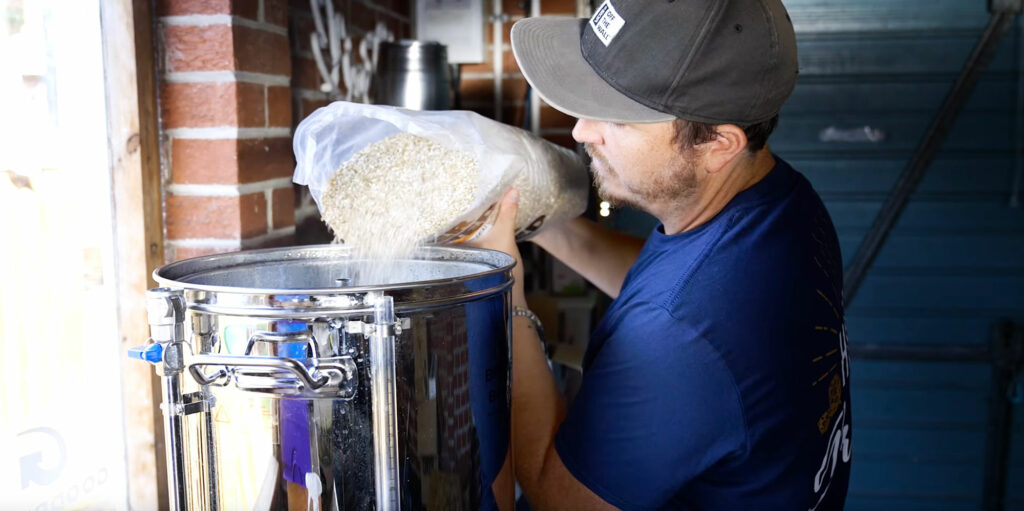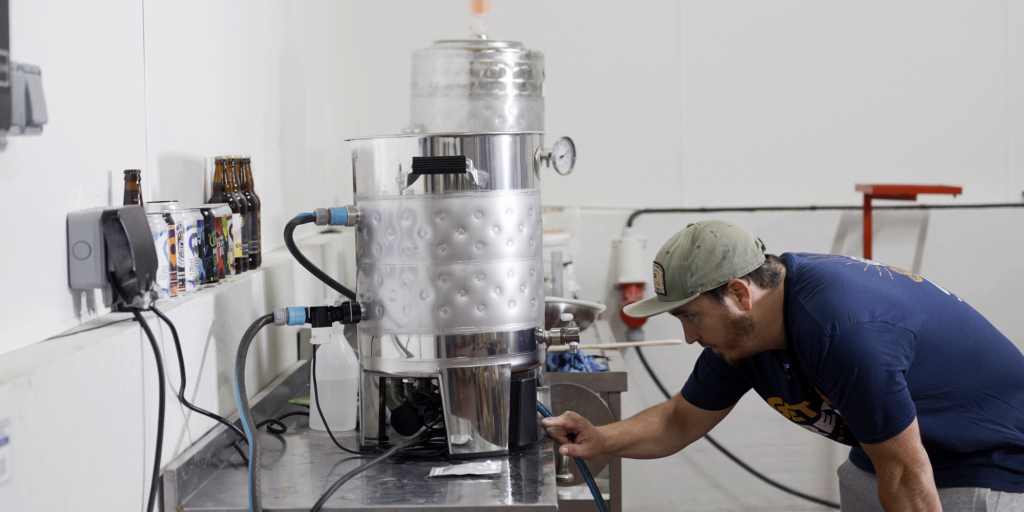
Make This Your Own — Could Homebrewing Help in the Cost of Living Crisis?
I have a confession to make: I don’t homebrew. Or to be more honest, I no longer homebrew.
As a hobby it is something I have attempted, and failed. An overprimed, exploding 30 litre batch of a (admittedly, very poor) attempt at American IPA put an end to any ambitions I might have had to one day become a brewer. While my endeavours did not leave me with delicious beer, it did teach me a thing or two – namely that in my case I should probably leave it to the professionals, and that half-fermented beer is much more difficult to scrub off wooden floorboards once it has dried.
The main reason I tried my hand at homebrewing is because I wanted to better understand the brewing process. From how mashing at different temperatures will produce different viscosities and flavours in wort, and how boiling hops for different lengths (or using them after the boil, or as a dry hop) would affect the finished beer. Luckily in my profession as a writer I’ve been able to spend plenty of time not only quizzing homebrewers who actually know what they’re doing, but plenty of professionals. Hanging around in breweries is, honestly, one of the best parts of the job – even when I get asked to help dig out the mash tun.
But with the news being as bleak as it is at present, I’ve been thinking about homebrewing again, only in a different context. The cost of living is getting more expensive, and the price of beer – whether consumed at home or down the local pub – keeps going up. Beer is, increasingly, a luxury, as opposed to an accessible commodity. Is it time then, to dust off the pots and pans, invest in a few ingredients and once again try my hand at homebrewing, so I can potentially save a few bob?
In the beginning
Homebrewing in the UK has a fascinating history. Before the 20th century, it was common for households to brew their own beer, (as covered in more detail in this blog post by Boak & Bailey). However, in 1880 after the existing malt tax was replaced with a new beer tax, homebrewing began to be driven underground, as duty collectors sought to ensure all beer was only being made by licensed producers.
This changed in April 1963, when the tax was repealed, setting the wheels in motion for a boom in homebrewing. By the 1970’s the popularity of homebrewing in the UK began to gather at a serious pace, likely bolstered by the formation of CAMRA – the Campaign for Real Ale – in 1971, and a renewed interest in classic British beer. It was reported by The Mirror in 1978 that the UK was home to more than 2 million homebrewers, and while a lot of the reporting of the time points at positive sources when trying to explain its popularity, there was also another good reason: times were tough, and people were broke.
Half a century later homebrewing remains an incredibly popular hobby. Homebrewing books consistently rank among the best sellers on the Amazon beer chart, and there has arguably never been better access to ingredients or equipment for those who want to have a go at making their own beer.
But, just like in the 1970s, times are becoming more challenging. Going straight from a pandemic into a cost of living crisis means that people are looking to save money wherever they can. Many folks who picked up a mash paddle to keep the beer flowing while the pubs were shut during lockdown might be spurred to carry on, as it makes financial sense. Perhaps more significantly, however, is the fact that homebrewing is a fantastically rewarding hobby, and with the quality of equipment and ingredients available, there’s arguably never been a better time to get brewing.
Where to start
The good news is that from the beginner to the intermediate level the hobby is affordable, accessible, and will definitely allow you to produce a greater volume of beer, for less money than you would spend in a bottle shop, or down the pub. All you need to make sure you have is a large stock pot (around 30 litres should suffice) and adequate space to store your beer while it’s fermenting. Oh, and don’t forget to keep your empties, as those bottles will come in handy when you need to package your finished beer!
You can get started with something like the Get’ErBrewed Beginners Beer Making Kit from less than £70, but if you can afford to spend a little extra, I recommend getting the kit that also includes bottle sanitisation and fermentation temperature control. That way you’ll have much better control over the quality of your finished product. (I wish I had done this, because unlike me, with this you’ll be able to significantly minimise the risk of an exploding fermenter…)
Once you have your kit, brewing really is about sticking to the basics; keeping an eye on your timings and making sure that everything you use – from surfaces, to equipment, to your bottles – is properly sanitised. With a little patience you’ll soon be drinking beer made by your own fair hand, and once you homebrewing bug has bit, you’ll be keen to try your hand at some other recipes.

Some options
If you don’t quite feel ready to jump into all-grain brewing (meaning you use proper barley malt instead of liquid or powdered extract), then there are some amazing options that still give you access to exciting ingredients such as Citra hops, or Kviek yeast. Get’ErBrewed’s Foundation Beer Ingredient kits offer an incredible range of options that’ll help you produce great quality, delicious beer. And if brewing beer on a budget is your aim, then you’ll be delighted to hear that these kits start from as little as 60p a pint, meaning you get the satisfaction of enjoying beer you made yourself, while saving a few quid in the process.
(I would like to add a caveat here, that while homebrewing is a great hobby and can save you some cash, don’t forget that small businesses including craft breweries and pubs still need your support, where you can!)
After brewing up a few batches and sharing them with friends and family, there is a good chance you’ll want to upgrade your setup. Like with any hobby, homebrewing is a serious rabbit hole to fall into in terms of ingredients and equipment. Soon you could well be brewing on a sophisticated piece of equipment such as a Grainfather, using delicious varieties of heritage malt such as Chevalier or Plumage Archer, or even some of the latest hop flavour technology like Lupomax hop pellets that even the professionals have only recently started using themselves. The possibilities and combinations when homebrewing are almost endless. Do you try and emulate some of your favourite beers? Or will you try to develop a groundbreaking recipe of your own creation!
Conclusion
Regardless of your reason to start homebrewing, it is an incredibly rewarding hobby. Perhaps the best part of it is the amazing community that surrounds it, from the many local homebrewing clubs all over the UK, to events such as BrewCon, where you can meet fellow eager homebrewers, to the many competitions that let you pit your creations against those of your friends and peers.
Who knows, it could even be the start of something bigger. While most homebrewers are content to keep it as a hobby, some of the best small breweries in the country began their life in someone’s kitchen. From newcomers like Steelfish Brewing in Manchester, to the likes of Elusive Brewing in Berkshire, who’s founder Andy Parker has gone on to inspire a whole new wave of homebrewers, many of today’s commercial breweries can trace their origins back to an entry-level homebrewing kit.
Maybe it’s even time I dusted off my copy of Charlie Papazian’s The Complete Joy of Homebrewing and have another crack at making some beer myself. This time, however, I won’t be adding extra priming sugar without measuring it, as I never want to spend half a day scrubbing sticky wort off wooden floorboards ever again.
—Matthew Curtis